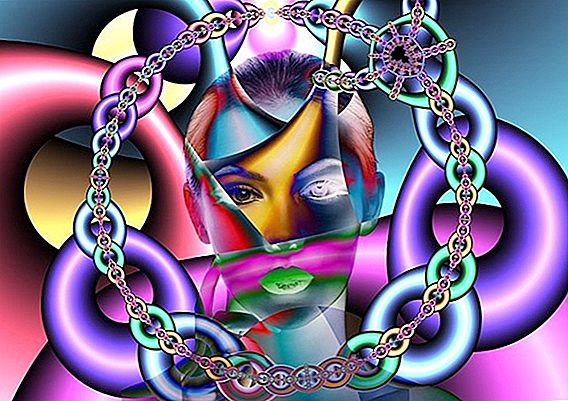There are many myths about a disease like schizophrenia. This mental illness is still not fully understood. Among the huge flow of information, there are several interesting facts that relate to this mental pathology.

Patients with schizophrenia are rarely violent. Often a schizophrenic is a quiet and reserved person who spends most of his time in his world, in his pathological fantasies. Even with an exacerbation of the condition, not every patient with this mental illness will grab a knife or try to cripple a person who accidentally gets in the way. Much more violent are people in a state of alcoholic psychosis. As a rule, inappropriate behavior in schizophrenics provokes hallucinations; a lot depends on a person’s temperament and those crazy ideas that fill his consciousness.
Schizophrenia is not always accompanied by voices or visual hallucinations, illusions. Very often, a disease can occur without an abundance of disease products. Products directly call visual, tactile, auditory hallucinations, delusional ideas, and so on. If a person hallucinates, this is not an argument for an instant verdict that he is sick with schizophrenia.
People with schizophrenia are not without emotion. From the side it may seem that a schizophrenic is an insensitive person. However, this is just a mask and a distorted representation. In fact, schizophrenics usually experience a lot of different emotions, they are characterized by ambivalence. But very often, such people are simply not able to distinguish true and false feelings from each other, to describe what they feel.
Schizophrenia can be suspected by sight. The fact is that for patients with this mental disorder it is very difficult to focus their eyes. Most often, the eyes of a schizophrenic run quickly, the look itself looks restless, distracted, inadequate. If the patient looks at his interlocutor, then he may have the feeling that the patient’s gaze is directed somewhere through him.
For schizophrenia, long remissions are typical. Remission involves an episode in a person’s life when a mental illness does not make itself felt. Most often, patients are remitted with medication and supportive psychotherapy. There are cases when a schizophrenic episode was present in a person’s life only once, but the patient’s status is still assigned to him. However, schizophrenia does not imply a complete disability.
Schizophrenia and a split personality are not identical concepts. With schizophrenia, symptoms typical of a split personality are extremely rare. When a person claims to have a split / upset / so on personality, this may be a reason for suspicion of the development of a dissociative identity disorder (multiple personality disorder).
Schizophrenia is a young disease. As a rule, the first bright outbreak of psychosis occurs between the ages of 18 and 25, although background symptoms and changes in behavior have usually been observed for some time. However, there are such forms of the disease when the condition rapidly worsens in childhood. At the moment, the diagnosis of childhood schizophrenia is not uncommon. Scientists also note that a greater risk of developing the disease is observed in twins and twins, as well as in children in whom one of the parents or one of the next of kin has a similar diagnosis.
Schizophrenics and creative personalities have much more in common than it might seem at the first moment. The fact is that according to the results of the studies, it was revealed that the brain of a healthy creative person and the brain of a schizophrenic are equally incorrectly distributing and directing thoughts. Scientists suggest that in both cases, the brain lacks some important receptors, which would be responsible for the stereotyping of thinking. It is specifically about dopamine receptors that have a direct connection with the thalamus.
True schizophrenia of any form is not a widespread painful condition. In recent years, this diagnosis has been made more often, but at the moment only about 2% of people on the planet are really sick with schizophrenia. However, we are talking exclusively about diagnosed, recorded cases.
Schizophrenia is a disease that cannot be treated. Yes, a patient with this mental illness can be brought to a stable or prolonged remission. Yes, schizophrenia does not always progress quickly and does not always lead to dementia, and then to death. Yes, a schizophrenic can live a conditionally full life, but he is always forced to take certain drugs. The dosage of medicines with the course of life can vary, some drugs can be replaced with others, but drug support is needed all the time. Otherwise, the relapse and the sharp progress of the disease is very great. Schizophrenia cannot be completely cured.
